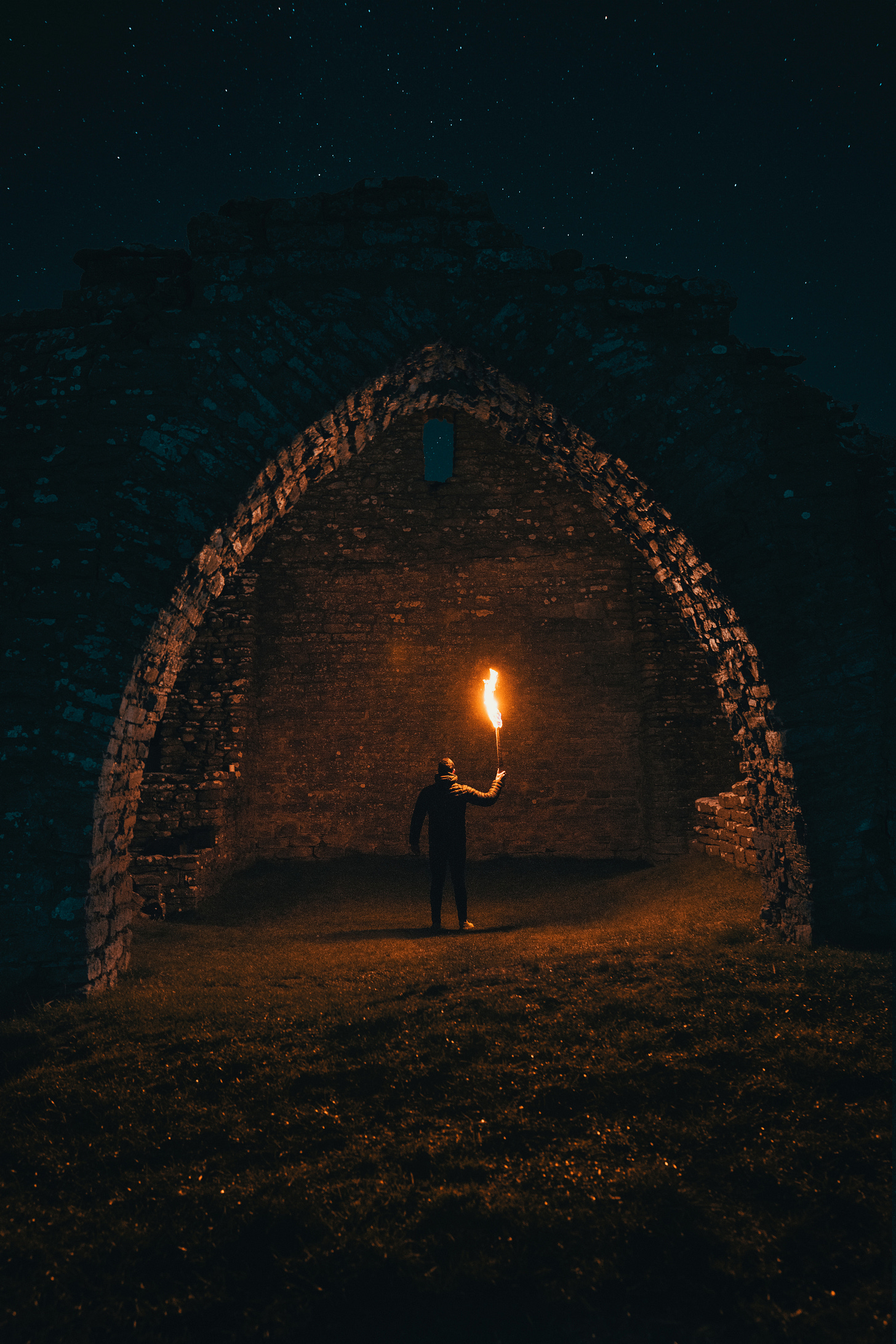finding light on an unlit footpath

This is my season review of Foster—I joined Season Two of their writing collective in January. I’ve mentioned them several times in previous essays and wanted to shed some light.
"I can't do this anymore."
After grappling with disillusion and burnout for a couple years, I mustered the courage to leave my software engineering job last November. All the excuses I made for staying—that the money might make it worth it, becoming a Product Manager might fix things, or that another company might be better—finally crumbled to the ground.
I promised myself two things. I would travel and write more consistently. So I booked a one-way ticket to Barcelona and published a reflection on the stories we tell ourselves about work.
Strange things started happening. I received messages from dozens of people— former coworkers, a VP at an important place, and complete strangers—who all felt what I had expressed: deep discontent with their jobs, and suspicion towards the stories of work they’d been sold.
Writing gave me an escape and a way to connect deeply with people, in a way my engineering job never did. I relished the thrill and buzz of penning a fun piece, jamming with myself as I played with evocative metaphors and wove words together to form a narrative. I was having fun, a feeling I hadn't had on weekdays for a long, long time.
Then, a stranger’s tweet, a gem in the hellscape of Elon’s open grave, led me to the chance to join Season Two of Foster's writing collective. I was intrigued.
I clicked, and rummaged through their timeline. I saw promises to "cultivate authenticity and courage online”, that I’d learn AI writing tools, and that Foster also offered a Chrome extension, where I could receive reviews on my essays from an army of professional editors around the world. Sounded like a good thing to try. I downloaded the tool, wrote an essay and hit "share draft". Then, I went to bed. And woke up to a flurry of helpful comments in my doc.
It was like having a friendly, kind, human writing partner by my side. Someone who appreciated my writing and wanted it to shine. Who affirmed my quirky metaphors and writing voice. Who shared technical tips that I'd never learned before. I loved it. If these people were the same people running the writer's collective, then this could be transformative for me. I leaned in.
During the first class, we talked about "finding our truths" —wording which initially made my inner engineer raise an eyebrow. If we all have different truths, what happens when they conflict? Don't we all agree that certain things are settled? I came to understand that that phrase meant something different. Truths were a container for "your story", "your perspective", and "your unexpressed thoughts". The raging, burning, difficult stories lodged within you, even the ones you haven't had the courage to say out loud.
Ah, that was a mental unlock. Something clicked in my head.
I finally uttered that I wanted to write a book someday. I wrote about the weight of golden handcuffs bearing down on my neck. I published this heartwrenching piece about losing a dear friend tragically. I opened up about my fears of being a writer. I wrote an obituary to my dreams of being a startup founder.
I didn't publish all of these, but the unlock allowed me to heal, to feel and to authentically express myself in a way I'd never done before. My writing became better, more vulnerable and more prolific. Foster was part-therapy, part writing school.
In one class, we did breathwork exercises designed to help writers fight the anxieties of the blank page and perfectionism (which my inner engineer also bristled at). When I eventually dialled down the resistance, I quickly saw the power in those techniques. We learned to treat our emotions as guides for stories—where we feel things (be it anger, elation, disgust, or wonder) is where the magic is. Because our readers can tell when we truly care or when we're apathetic about the story. I was so used to feeling nothing about my work, that this was a radical idea.
We learned how to use ChatGPT as a writing copilot. Instead of worrying about AI replacing writers, I learned it was a powerful tool to help evaluate my writing, organise my thoughts and suggest essay ideas from story snippets I had jotted down. We talked about how writers can build thriving independent businesses with paid subscriptions. I met other people on sabbaticals who made me feel less crazy for leaving stability for uncertainty. All this while, I was using the Foster extension to edit my drafts, and found the editors always found a way to improve my writing (shoutout to Alicia Kenworthy🫡) .
I started to wonder, perhaps I have a future in this writing thing. Because when I write, I have this unmistakable feeling of aliveness and certainty.
When I left my job, I stepped out onto an unlit, unsigned footpath. I didn't know where I was planting my feet or where the compass tilted. I was running off the adrenaline that gave me escape velocity. But I knew that would run out someday. Foster beamed light on my path. I found my people. They saw talent in my craft and spoke the same language as me. They understood my writing anxieties, and helped calm those pesky, unvalidated fears. While I'm uncertain what I'll do for work going further, I know I must continue writing. The rebirth of this newsletter is testament to this.
Foster transformed my writing craft, and I wholeheartedly recommend Season Three for any aspiring writers in the house.
PS - if you enjoyed this piece, please let me know by liking the heart button. Muchas gracias!



Beautiful piece, Tobi. I didn’t know about Foster. Now I’m intrigued. Thank you!
I’ve so loved reading your work, Tobi! Grateful that Foster connected us :)